
The Business of Fashion
Agenda-setting intelligence, analysis and advice for the global fashion community.

Agenda-setting intelligence, analysis and advice for the global fashion community.
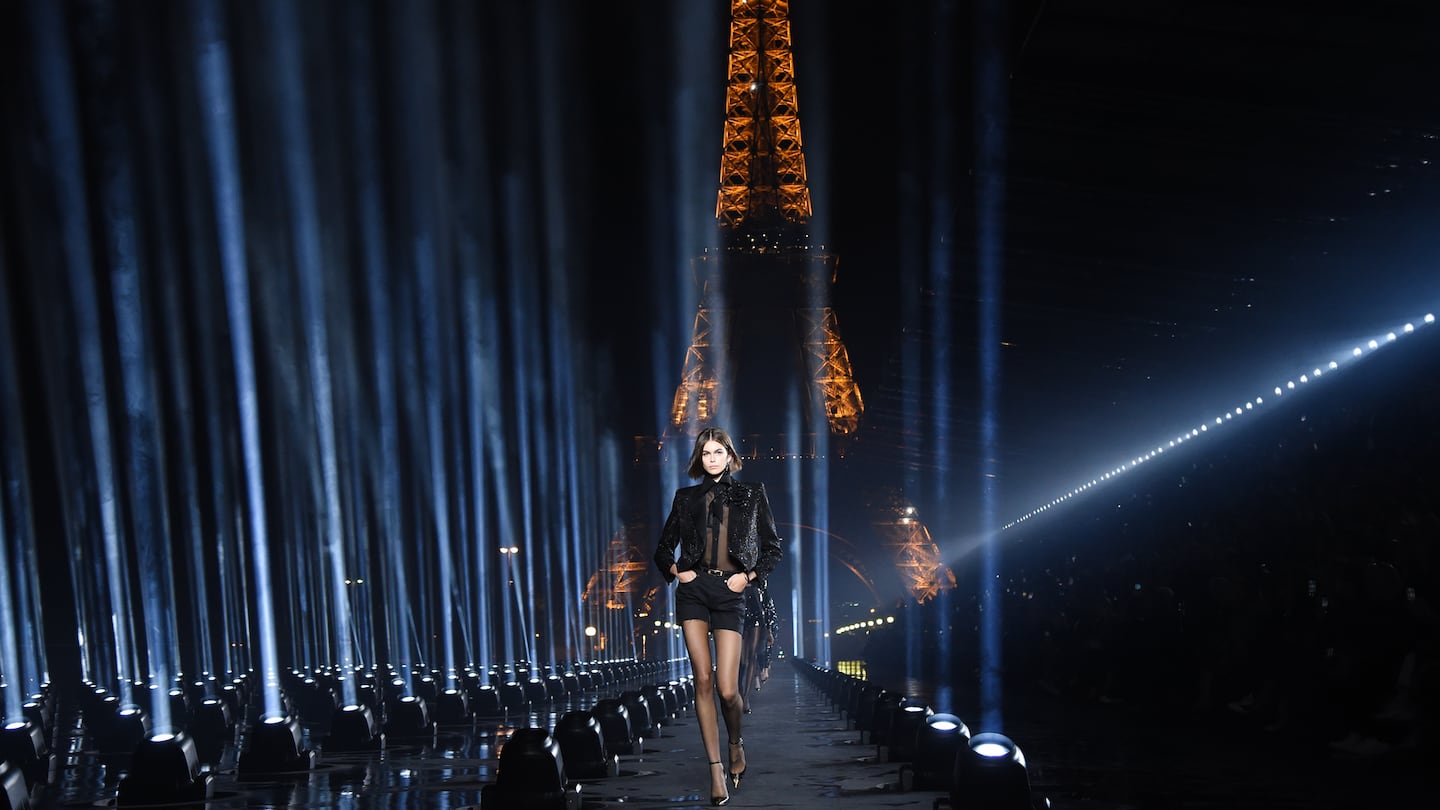
This week, another pandemic-era fashion month came to a close. And again, some of the industry’s biggest brands sat on the sidelines, opting out of the traditional fashion weeks that have historically been a powerful platform for reaching media, buyers and end consumers.
Ralph Lauren, Michael Kors, Coach and Tory Burch decided to skip New York Fashion Week again this season. London Fashion Week anchor Burberry showed only menswear. Meanwhile in Europe, for every major brand that decided to participate, there were those missing from the Milan and Paris calendars, notably Gucci, Saint Laurent, Bottega Veneta, Balenciaga and Alexander McQueen, all owned by Kering, though there is no group policy on the matter.
So why are so many big brands skipping fashion week?
To be clear, those missing from official fashion weeks haven’t stopped marketing their collections. Indeed, many are staging activations in the coming weeks. But their calculus on when, where and how to most effectively tell their stories has clearly shifted.
ADVERTISEMENT
Brands have been rewiring their fashion week strategies to varying degrees since the luxury market went global and social media hit the mainstream. Years ago, labels with enough marketing muscle realised they could generate dedicated coverage and activate important regional markets by staging elaborate off-piste, off-calendar shows far from the growing clutter of traditional fashion weeks.
But the pandemic triggered a more radical rethink.
Traditional fashion shows are incredibly powerful events which harness the live gathering of the “right” people — editors, buyers, celebrities, influencers and other tastemakers — to conjure and transmit the cultural and emotional value that gets fashion’s dream machine whirring, turning dresses into objects of desire. And traditional fashion weeks, if increasingly noisy, are a practical way of getting the right people in the right place at the right time, bundling brands together to minimise friction and maximise impact.
The shift to digital changed the calculus. Since Covid-19 put a stop to fashion’s seasonal congregations and shows went online, delivered frictionlessly as digital videos, the concept of bundling brands together on a fashion week calendar has become less valuable, certainly for bigger labels that don’t need fashion week to confer legitimacy or attract attention.
At the same time, skipping fashion week comes with powerful structural opportunities.
For years, the conventions of fashion week, for all their cultural value, have been a significant barrier to addressing deep-rooted problems with a fashion system conceived for a 20th-century world, before the rise of digital media and rapid globalisation.
First there’s the issue of timing. Fashion weeks, once closed industry events for editors and buyers, now double as consumer marketing spectacles. But they still happen months before products hit stores, creating a misalignment between fashion’s communications and retail cycles.
Skipping fashion week has allowed many brands to make progress on this problem, delaying their shows until closer to the selling season — though not too close, as they still need time to shoot campaigns, place products in the press and do pre-orders with top clients.
ADVERTISEMENT
Then, there’s the question of seasons themselves. Fashion weeks are built on the concept of seasonal collections, a nonsensical notion in today’s fashion market where demand is global and consumers crave newness at the speed of Instagram. For some, a break with fashion week has helped enact a deeper shift towards seasonless collections and “always on” communications.
Gucci, for one, has done away with traditional seasonal collections — there is no more Autumn/Winter or Spring/Summer — and decided to “concentrate on two signature fashion events in spring and fall, not necessarily correlated to the international fashion week calendars,” explained Kering chief François-Henri Pinault last month. “It goes along with a new always-on pace of regular additions, either newness or extension of the collection, as well as collaboration and capsules, supported by a superior cadence of digital storytelling.”
But what happens when the pandemic recedes? Will key brands like Gucci and Saint Laurent come back to fashion week? It’s too early to know and most are leaving their options open.
Physical fashion shows are uniquely powerful marketing platforms and bundling them together in some way to reduce the logistical friction inherent in the world still makes sense, perhaps even more so as pandemic-hit press and buyers rationalise how they spend time.
Some see a return to fashion week, but not as we once knew it.
For a start, the event could be pushed to later in the season, shortening the gap between when brands stage shows and when their products hit stores. More labels are likely to show collections that transcend the traditional Autumn/Winter and Spring/Summer seasons. And shows are likely to feed into streams of “always on” marketing activations.
Instead of the traditional month-long circuit that winds its way from New York to London to Milan to Paris, some have suggested a single global event that changes location from cycle to cycle. One season it’s Paris, the next season it’s Shanghai. An Olympics of Fashion, anyone?
One thing’s for sure. The new normal is not going to look like the old normal.
ADVERTISEMENT
THE NEWS IN BRIEF
FASHION, BUSINESS AND THE ECONOMY
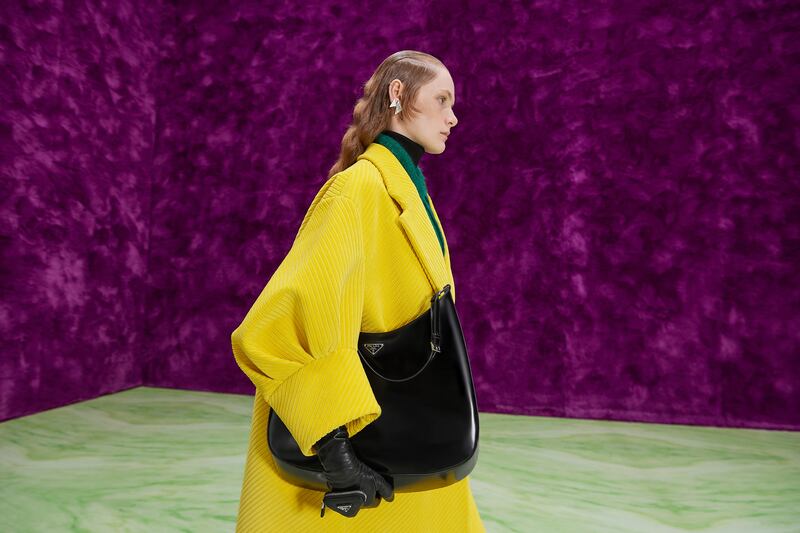
Prada profits recover in second half of 2020. The Italian fashion group’s revenue for the year fell 24 percent to €2.4 billion ($2.9 billion), as improved sales in recent months offset a 40 percent slump in the first half of 2020. A focus on e-commerce, soaring sales in Asia and strict control over costs and investments fuelled the bounce back.
Burberry says sales up by roughly 30 percent since December. The group, which will publish its full-year results on May 13, said it expects revenue to decline by 10 to 11 percent for the full year. Analysts had on average anticipated group revenue to fall 13 percent for the year.
Hermès bets on mushroom-based ‘leather.’ The brand’s “Victoria” travel bag has been reimagined in canvas, elements of calfskin and a material derived from mycelium — a network of threads from the root structure of mushrooms — Hermès developed in partnership with California-based start-up MycoWorks.
Inditex’s net profit falls 70 percent. The dramatic decline in 2020 performance was steeper than expected as the pandemic continues to weigh. Fifteen percent of the Zara owner’s shops worldwide were still closed due to Covid-19 restrictions as of March 8.
Ferragamo flags early 2021 improvement after full-year loss. The Italian luxury goods group said retail sales grew in the first nine weeks of 2021. This comes after the luxury shoemaker reported in January a 33 percent drop in 2020 sales — one of the worst performances in the industry grappling with shop closures to limit Covid-19.
Tod’s said it’s positive on 2021 sales after pandemic-driven loss. The Italian luxury leather goods maker, known for its loafers, reported a full-year net loss of €73.2 million, below expectations of a €106 million loss.
Coupang raises $3.5 billion ahead of IPO. The South Korean e-commerce giant listed on the New York Stock Exchange on Thursday — marking the largest IPO of a foreign company on US markets since Alibaba’s offering in 2014.
Christian Louboutin valued at €2.3 Billion as Exor takes 24 percent stake. The €541 million ($643 million) deal marks the second investment Exor — which is a top investor in high-end carmaker Ferrari — has made in the luxury fashion industry since December, when it became the largest shareholder of Shang Xia, a Chinese luxury group co-founded by French group Hermès.
Ralph Lauren eyes resale. The company announced a suite of initiatives Tuesday under a new circularity strategy, among them plans to enable product collection options from next year that could support efforts to recycle and resell pre-loved Ralph Lauren products.
Kanye West is ‘focused’ on apparel line launch, Gap CEO says. The launch of Yeezy Gap will occur toward the middle of the year, Gap executives said. It will not include footwear, since the Yeezy brand has a long-term deal with Adidas. So far, the relationship has not been entirely smooth. In September West put out a tweet spotlighting Gap’s lack of board diversity. Last week, Gap announced Salaam Coleman Smith, a former Disney executive, would join its board of directors.
THE BUSINESS OF BEAUTY
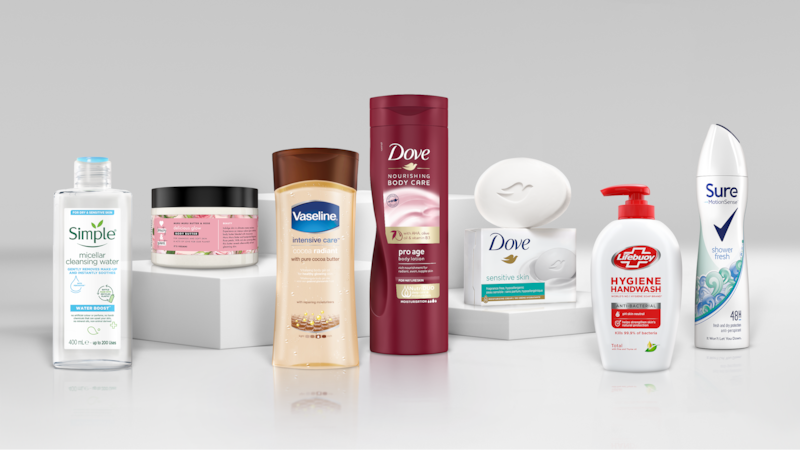
Unilever bans the word ‘normal’ from its marketing as part of a wider inclusivity push. The announcement follows a 10,000-person study Unilever commissioned, which found that more than half of respondents felt that the beauty and personal care industry makes them feel excluded.
Aesop and The Body Shop ready for Chinese market. Just days after Chinese authorities officially dropped a requirement for most imported cosmetic products to be tested on animals before being sold in China, cruelty free beauty leaders are quickly moving into the world’s second-largest beauty market.
PEOPLE
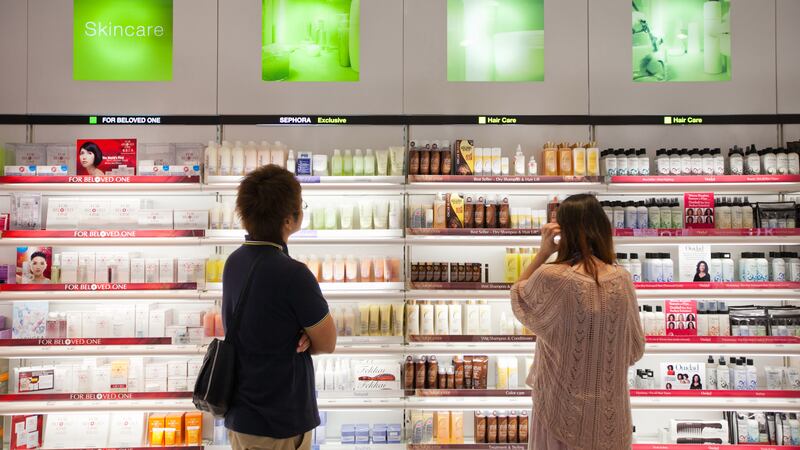
Ulta Beauty names Dave Kimbell as new CEO, misses share target. Kimbell has served in many leadership roles for the cosmetics retailer — including chief marketing officer and president — and will replace Mary Dillon, who will become the executive chair of the company’s board of directors. The company’s shares were down 8.3 percent at $318.70 at close on Thursday.
Alexander Wang responds to sexual misconduct accusations: ‘I will do better.’ The designer previously called the growing number of allegations against him “false, fabricated and mostly anonymous.” Lisa Bloom, a prominent Los Angeles defense attorney who has previously represented Harvey Weinstein as well as women who accused former President Trump of sexual misconduct, represents the 10 Wang accusers. Bloom released a statement on Twitter indicating she had met with Wang and his team, saying “We acknowledge Mr. Wang’s apology and are moving forward.”
Angelica Cheung takes on strategic advisory role for Zegna. The founding chief editor of Vogue China will take on a strategic advisory role with Italian luxury menswear group Ermengildo Zegna. Cheung will perform this role in conjunction with her full-time position as venture partner at Sequoia Capital’s China branch, which was announced in February.
Herschel Supply Co. recruits CEO from Arc’teryx. Jon Hoerauf joins the Vancouver-based lifestyle company — best known for its backpacks — from the upscale outerwear label. The chief executive role is new for Herschel, which was previously led by its co-founders and managing directors, Lyndon and Jamie Cormack.
MEDIA AND TECHNOLOGY
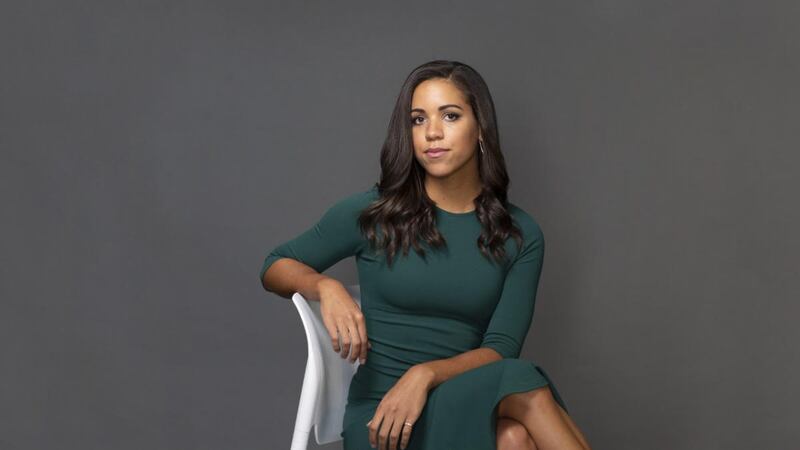
Teen Vogue staff publish letter condemning new editor in chief’s past tweets. Axios reporter Alexi McCammond’s appointment to the role has proved controversial, after a series of past tweets that included Asian stereotypes attracted criticism on social media. Ulta paused a seven figure advertising campaign with the publication over the editor’s tweets. The response comes amidst a wave of activism against anti-Asian hate crimes and discrimination.
China’s JD.com cashes in on steady online demand, beats market expectations. The Beijing-based company posted a revenue of 745.8 billion yuan ($114.97 billion) for the year, beating analysts’ estimates of 740.81 billion yuan. While China has largely emerged from coronavirus lockdowns with most businesses resuming production, JD.com’s domestic consumers continue to shop online for everything from daily groceries to luxury products.
Bruce Usher, Imruh Asha among new appointments at Dazed. Industry veteran Bruce Usher — formerly creative director of ad agency Wieden+Kennedy — has been named art director of the British style bible, while Jack Mills, who has written for the likes of The Guardian and American GQ, has been brought in as editor. Paris-based stylist Imruh Asha will take the lead as fashion editor, working closely with stylist Claudia Sinclair who has been named Dazed’s new fashion editor at large. Mischa Notcutt, founder of pioneering casting agency 11casting, will take on the role of casting director.
Compiled by Joan Kennedy.
The sharp fall in the yen, combined with a number of premium brands not adjusting their prices to reflect the change, has created a rare opportunity to grab luxe goods at a discount.
Fashion’s presence at Milan Design Week grew even bigger this year. Savvy activations by brands including Hermès, Gucci, Bottega Veneta, Loewe and Prada showed how Salone has become a ‘critical petri dish for dalliances between design and fashion,’ Dan Thawley reports.
The Hood By Air co-founder’s ready-to-wear capsule for the Paris-based perfume and fashion house will be timed to coincide with the Met Gala in New York.
Revenues fell on a reported basis, confirming sector-wide fears that luxury demand would continue to slow.